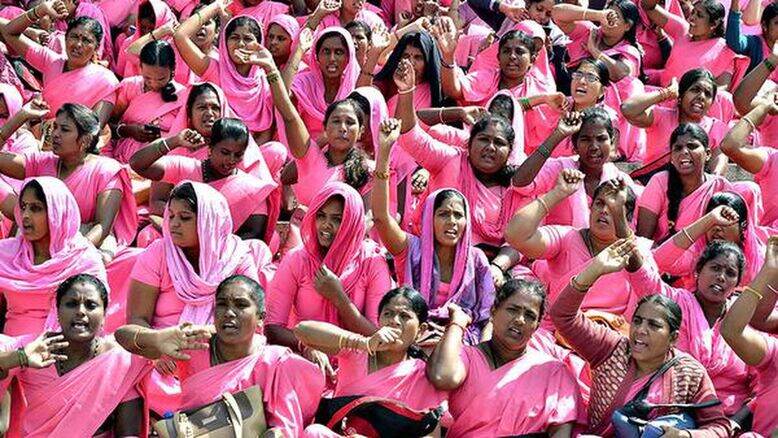The Accredited Social Health Activist or ASHA workers will soon be assigned the task of collecting vital data to help artificial intelligence identify breast cancer risk. The data will capture factors and patterns specific to Indian women who are at high risk of breast cancer.
This comes as part of the ambitious study being conducted at the All India Institute of Medical Science (AIIMS) in New Delhi.
The Asha Workers Scheme of 2005
Asha health workers are located inside remote villages and towns to strengthen the healthcare system of the country. Their work includes regular visit to each household, ensuring a healthy society.
Female community health workers are employed by the Ministry of Health and Family Welfare as part of India’s National Rural Health Mission (NRHM). The mission began in 2005 with the idea of connecting marginalised communities to the healthcare system of the country. By 2018, the country had approximately more than ten lakh Asha workers.
Asha worker women are trained to act as health educators and promoters inside a community. They are also responsible for mobilising the community towards health planning. Their other responsibilities include counselling, community sanitisation, provisions of drugs, escorting the patient, diagnosis, surveys, and health planning. The health workers carry out detailed conversations with families about their personal health and heredity diseases. Naturally, Asha workers are the first point of contact for the health-related needs of people living in faraway areas.
Under the new plan, all this data collected will be uploaded online via tablets.
The Study at AIIMS
Led by Dr. Jitendra Meena, the study seeks to improve early breast cancer detection rates and reduce female mortality. Dr Jitendra is an associate professor of preventive oncology at the National Cancer Institute, AIIMS. His idea is to cut down the number of deaths caused by breast cancer, which remains the highest in the world. Breast cancer comprises 10.6% of all cancer deaths in India, according to the data released by the online database website Globocan.
The AIIMS study is the first one under the central government flagship scheme to establish three Centres for Excellence (CoE) in AI with a focus on healthcare, agriculture and sustainable cities. A funding of ₹300 crore will ensure the setting up of a healthcare Centre of Excellence, the premier institute in partnership with IIT Delhi.
Besides focusing on breast cancer, IIT Delhi and AIIMS will also work on national programmes addressing non-communicable diseases including diabetes, cardiovascular disease and stroke.
“By the time the majority of breast cancer cases are detected in India, they have already progressed to stage three or four. At this stage, it is difficult to treat them. AI will help us on two fronts. First, it will interpret the data to identify women who need mammograms (specialised x-rays to check for the signs of breast cancer) while reassuring others with low-risk profiles,” said Dr Rangarajan, professor of radiology at AIIMS, Delhi.
According to her, AI tools will help less skilled professionals interpret images much faster. This can ensure advanced cancer risk screening in remote areas as well. Because of the lack of trained radiologists in remote, breast cancer cases are often left undetected.
Use of AI in Healthcare
All the data collected by Asha workers will be fed into AI models for analysis. The result of the analysis will help AI in predicting the risk of developing breast cancer. AI will also be used in the analysis of mammograms of patients.
At the moment, AI is being used to analyse genetic and molecular-level data across the world. AI is used to create personalised treatment strategies for patients. If AI turns out useful under this initiative, the government will start an economic assessment of the cost required to scale this model across India. NGOs and companies will loop in that stage, said Dr Rangarajan.


